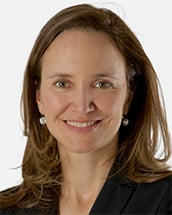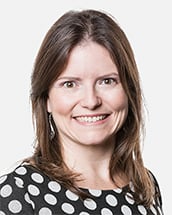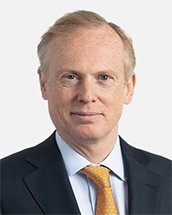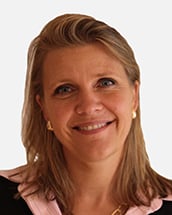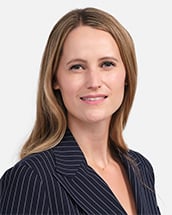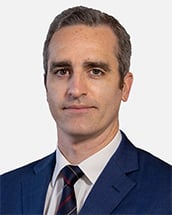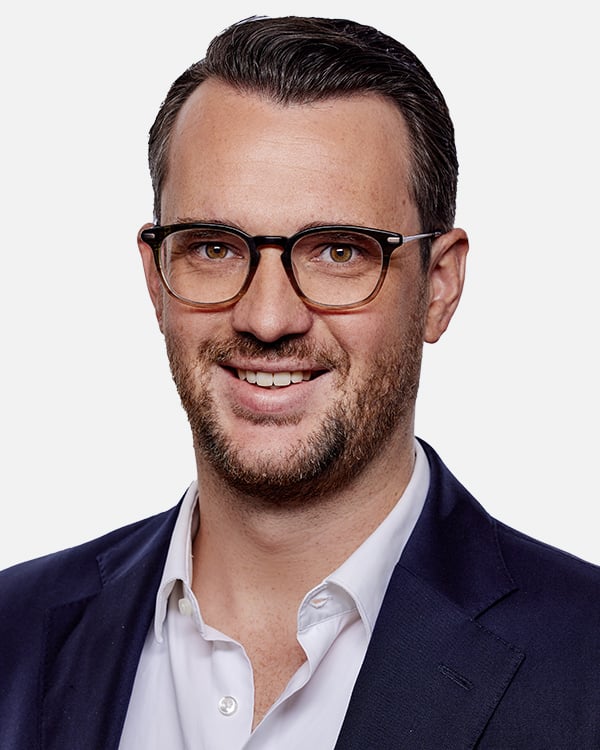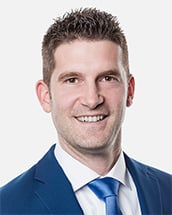Solutions for a Connected World
Event | 1 June 2023 9:00 AM – 6:00 PM
Ahead of Tax & Legal Conference 2023
Date & Time
1 June 2023 9:00 AM – 6:00 PM
Location
Claude Debussylaan 54
1082 MD Amsterdam
P.O. Box 2720
1000 CS
Amsterdam
The Netherlands
At the Ahead of Tax & Legal Conference 2023, our tax and legal experts will highlight three important themes: race to net zero, innovation and the international business climate. Below you will find the full program with descriptions and speakers for all sessions. In the morning (Program Tax), the focus is on tax, with some surprising legal insights. In the afternoon (Program Legal), it is the other way around: the focus is on the legal aspects, with some important tax angles to be aware of.
You can register for the conference and subscribe to the sessions you want to attend by clicking the ‘Register’ button at the top of the page or by clicking one of the buttons by the descriptions of the various sessions. You can subscribe to multiple sessions on one theme or create your own program for the day.
Program – Tax
Registration and Welcome
| 09:00 – 09:20 | Registration |
| 09:20 – 09:50 | Welcome and Tax Plenary session: Tax from Every Angle |
Round One: 10:00 – 10:45
Round Two: 11:10 – 11:55
Round Three: 12:00 – 12:45
Closing Plenary and Networking Lunch Tax & Legal
| 12:45 – 13:00 | Closing Plenary Summary |
| 13:00 – 14:00 | Networking Lunch Tax & Legal |
Program – Legal
Networking Lunch Legal & Tax and Registration
| 13:00 – 14:00 | Registration and Lunch |
| 14:00 – 14:15 | Welcome and Plenary session |
Round Four: 14:15 – 14:55
Round Five: 15:20 – 16:00
Round Six: 16:05 – 16:45
Closing Summary and Drinks
| 16:45 – 17:15 | Plenary Session Summary |
| 17:45 – 18:30 | Drinks |
Race to Net-Zero stream (Program Tax)
10.00-10.45
ESG as part of the deal: the role of ESG in M&A and tax transactions
As we entered the new decade, businesses were already grappling with new challenges to their license to operate: What did it mean to be a good corporate citizen in the context of the climate emergency and continuing social inequality? Consumer, employee and shareholder activism have continued to force environmental, social and governance (ESG) issues to the top of the board’s and management’s agenda. Having a clear corporate purpose is becoming essential.
It is expected that ESG will play an increasing role in M&A transactions. A focus on ESG may give a company a competitive advantage, and when it comes to mitigating
risk and creating value in an M&A transaction, ESG factors must be considered. This panel will discuss market trends and best practice examples.
Our moderator
Eva-Maria Ségur-Cabanac is a partner in the Corporate M&A practice, a member of our global sustainability practice, and a regular speaker on sustainable finance and the legal framework of EU ESG. She advises on cross-border transactions with a focus on energy and sustainable industries.
11.10-11.55
The end of the race to the bottom: Pillar Two becomes reality
Toward the end of last year, the EU reached agreement on its Pillar Two Directive, leaving a year for member states to implement the GloBE rules into domestic law. Other jurisdictions are also starting to implement the GloBE rules, and the OECD released its guidance regarding safe harbours and penalty relief, as well as public consultations on the GloBE information return and tax certainty for the GloBE rules.
Now that the focus is shifting from policy to implementation, the real work of preparing for Pillar Two has begun. This panel will discuss a number of case studies to explain some interesting options to qualify for the safe harbour rules and to mitigate the impact of Pillar Two after the safe harbour rules stop applying.
Our moderator
Michiel Kloes is a partner in our Direct Tax practice group and advises on supply chain planning, mergers and acquisitions, corporate restructurings, treaty application and EU law. The tax aspects of the new world of work are currently high on the agenda of many of his clients
12.00-12.45
Is global formulary apportionment on the horizon? What you need to know about Pillar One
This panel will provide a refresh on the building blocks of Pillar One, discuss in detail the recent Pillar One consultation documents on Amount B, digital services tax and similar measures, and address what happens if there is no global adoption of Amount A.
Our moderator
Antonio Russo is a partner in our Transfer Pricing practice group and is chair of our Global Tax Practice Group. Antonio specializes in the design, implementation and valuation of transfer pricing for businesses and intangible assets.
Innovation stream (Program Tax)
10.00-10.45
Virtual reality and real-life consequences: taxes and law in the metaverse
If you want to do business in the metaverse, you will have to deal with some legal and tax challenges. How do you protect your brand and intellectual property in the metaverse? Are your contractual agreements fit for purpose for new and existing partnerships? How do you invoice for virtual products delivered, and where do you pay taxes on those real revenues from a virtual world? In this session, this panel will guide you through the tax and legal aspects of doing business in the metaverse and dealing with cryptocurrencies and non-fungible tokens.
Our moderator
Roger van de Berg is a legal director in our Indirect Tax practice group and specializes in VAT and other indirect taxes, with a great interest in cryptocurrency & digital economy taxation. He regularly publishes and speaks on emerging technologies such as crypto, blockchain, NFTs and metaverses.
11.10-11.55
Transforming business for a connected world: tax and legal challenges for an online business
The pace of digital acceleration has prompted companies across all industries to re-examine and transform their business models. Smart technologies such as 5G, AI/robotics, machine learning and the Internet of Things are all becoming more interconnected and helping businesses design and execute their digital transformation plans. The economy is becoming increasingly digitalised, and, unsurprisingly, online businesses are on the rise. A constant increase of new regulations may pose various tax and legal challenges for companies that often, from the very first day, will operate globally. This panel will examine the constantly changing tax and legal considerations for an online business.
Our moderator
Jan Snel is a partner in our Indirect Tax practice group and primarily advises international high-tech, e-commerce and medical technology companies on international VAT and customs law. Jan Snel is a regular international speaker on EU VAT and customs issues.
REGISTER
12.00-12.45
No office, no problem: considerations of working from anywhere
The COVID-19 pandemic is almost in the rear-view mirror, but some changes are here to stay. Having experienced mandatory “working from home” during the pandemic, employees now expect to have this option made available to them permanently. The panel will discuss the tax implications of remote work, including permanent establishment considerations, employer withholding tax obligations, corporate income tax and apportionment issues. We will also present real-life, practical advice for companies establishing or increasing their remote workforce, such as best practices and guidelines that every company should institute as they adapt to their “next” normal.
Our moderator
Don-Tobias Jol is a partner in the Direct Tax practice group with a special focus on global compensation and benefits taxation, with a particular emphasis on executive, equity and expatriate compensation. He is a sought-after author and speaker on a variety of international remuneration issues relating to the (inter)national taxation of compensation & benefits.
International Business Climate (Program Tax)
10.00-10.45
The road to advanced certainty and relief from double taxation — the impact of the changing landscape
With the growing complexity of the global tax environment and a rapid increase in transfer pricing controversies, advance pricing agreements (APAs) are becoming even more important as a transfer pricing risk mitigation tool. Likewise, the availability of Mutual Agreement Procedure (MAP) relief is key to the overall tax strategy. How does the changing transfer pricing landscape impact the APA and MAP process? Several years into CBCR and BEPS, and with Pillar One on the horizon (or not), it is time to take stock of what corporate taxpayers may expect by sharing the most recent experiences and discussing the trends we see emerge.
Our moderator
Margreet Nijhof is a transfer pricing partner and focuses on domestic and international tax planning in the US with an emphasis on corporate reorganizations and restructurings, global tax planning and transfer pricing. Margreet Nijhof has been highly regarded in leading directories for years, both individually and with her team, and she’s a strong advocate for inclusion and diversity in the workplace.
11.10-11.55
Tax dispute resolution: burden of proof in transfer pricing disputes
Transfer pricing disputes are on the rise. For many multinational companies, transfer pricing continues to be their top audit risk. Transfer pricing disputes are among the most complex, impactful and time-consuming controversies in tax. But when it comes to a transfer pricing dispute, who carries the burden of proof and what role does TP documentation have in this regard? This panel will share recent Dutch audit and litigation experience and the – yet untested – approach taken by the Dutch tax authorities trying to shift the burden of proof to taxpayers in transfer pricing disputes.
Our moderator
Wibren Veldhuizen is a partner in the tax practice group and has extensive experience in tax planning and restructuring. He has assisted clients in developing strategies for the conclusion of ATR’s as well as tax audit defense and tax litigation.
12.00-12.45
Challenges from every angle: from beneficial ownership to unshelling, will your corporate structure pass the test?
Making a corporate structure future-proof has become very complex as tax developments are playing a growing role when a corporate structure is designed. Examples of such developments include the proposed ATAD 3 Directive, which aims to curtail the use of legal entities in the EU with no or minimal substance and economic activity (so-called “shell entities”), although also affecting valid investment-driven structures. Secondly, the so-called Danish cases of the CJEU have led to increases scrutiny of passive income streams across the EU. Moreover, there is an increasing audit focus from the tax authorities. This panel will examine which corporate and financing structures are currently most at risk of being scrutinised. It will also examine the best practices in corporate reorganisations, such as legal entity and financial instrument rationalisations.
Our moderator
Juliana Dantas is a partner in our Direct Tax practice group, focusing mainly on international tax planning, group restructuring, mergers and acquisitions, investment and financial structures, fund structuring, treaty interpretation and application. Juliana is qualified to practice both Brazilian and Dutch law.
Race to net-zero stream (Program Legal)
14:15 – 14:55
What is your legal path to net-zero?
What legislation will you face on your way to net zero? How will you comply with and report under ESG legislation, and how can you mitigate litigation risk? Eva-Maria, William-James and Heleen share their views and insights on the legal path the race to net-zero will take.
Our speakers
Eva-Maria Ségur-Cabanac is a partner in the Corporate M&A practice, a member of our global sustainability practice, and a regular speaker on sustainable finance and the legal framework of EU ESG. She advises on cross-border transactions with a focus on energy and sustainable industries.
Heleen Vrolijk is a legal director in the Global Reorganizations Practice Group and advises multinational companies on corporate governance, ESG and cross-border corporate reorganizations.
William-James Kettlewell is an associate in the EU Competition and Regulatory Affairs Practice Group and advises businesses extensively on European-wide energy, climate and sustainability issues, with specific experience in EU climate policies and the new EU ESG reporting landscape.
15:20 – 16:00
How does the legal sustainability framework for real estate impact your business?
In the race to net-zero, the real estate industry will play an important role. The government’s net-zero target and the measures it intends to take to achieve and enforce it mean that developers, lenders and occupiers will be forced to change. In an industry that has traditionally been “business as usual,” this will have an impact by 2050. Paul Goedvolk and Fedor Tanke and give you the inside scoop on the key components of the legal sustainability framework for the real estate (finance) industry, how they impact your business, how they interact and why they’re a big deal for the real estate and finance industry.
Our speakers
Paul Goedvolk is a partner in the Real Estate practice group and advises on all aspects of commercial real estate, real estate finance and project development, and has particular experience with sustainable real estate, (renewable) energy projects and data center development. Paul Goedvolk is regularly asked by the media to comment on developments in sustainable real estate.
Fedor Tanke is counsel in the Banking & Finance practice group and advises national and international banks, equity funds and sponsors and has particular experience in the real estate sector.
16:05 – 16:45
ESG-related compliance and class actions
The race to net-zero and other ESG-related compliance requirements will lead to an increase in the number of class actions as investors, consumers and other stakeholders examine what companies are actually doing in light of existing and new ESG obligations. As the Netherlands is a popular forum for international class actions, many of these ESG-related class actions will be filed in the Dutch class action register. Frank Kroes and Sjef Janssen will share their knowledge and experience with litigation related to ESG and climate change, and class actions in the Netherlands.
Our speakers
Frank Kroes is a partner in the Dispute Resolution practice group and is experienced in complex commercial disputes and domestic and international arbitration. He represents clients in a wide range of industries before courts at all levels, including the Supreme Court and the European Court of Justice.
Sjef Janssen is a senior associate and focuses on commercial and competition litigation, representing a variety of clients before courts of all instances.
Innovation stream (Program Legal)
14:15 – 14:55
Understanding the value of data and compliance with regulations
Accelerating technologies not only use but also generate large volumes of data. While the legislative focus has long been on personal data protection, since recent years lawmakers are also recognizing the importance of access to and reuse of non-personal data for technological developments. Nathalja Doing and Remke Scheepstra will guide you through the legal developments of collecting, processing and sharing data internationally.
Our speakers
Remke Scheepstra is a partner Employment and advises on all employment law matters, in particular data protection and compliance issues. She supports clients throughout the data protection cycle, from implementation to investigation and enforcement.
Nathalja Doing is a legal director in the IPTech and Data Protection practice and advises on new EU and national laws and regulations in the digital society, including platform and content regulation, (digital) marketing and advertising, and data protection.
15:20 – 16:00
Managing complex, international legal projects
At Baker McKenzie we are at the forefront of legal project management, believing a structured approach to complex matters results in increased efficiency, cost certainty and the ability to meet challenging deadlines. Our global team of legal project managers covers all regions and practice groups, and works alongside our lawyers, tax specialists, notaries and economists to provide innovative and practical support to client projects. They design and implement delivery solutions and drive efficiencies through better scope definition and process design, matter management, bespoke fee reporting and the deployment of advanced technology platforms. Laura Rietvelt and Patricia Hofsteenge share with you their experience managing complex, international legal projects.
Our speakers
Laura Rietvelt is a partner in Corporate Structures, advising on the design, implementation and management of global restructurings and leading international restructurings for many of our clients.
Patricia Hofsteenge is a senior legal project manager, assisting lawyers and tax counsels in the planning, implementation and evaluation of projects involving multiple jurisdictions and practices. She has extensive experience in the use of legal technology in projects.
16:05 – 16:45
Virtual Reality, Real Life Consequences — The metaverse: law and taxes
If you want to do business in the Metaverse, you must deal with some legal and tax challenges. How do you protect your brand and intellectual property in the Metaverse? Are your contractual agreements in order for new and existing partnerships? How do you invoice for virtual products delivered and where do you pay taxes on those real revenues from a virtual world? Benjamin van Kessel van de Berg will guide you through the legal and tax aspects of doing business in the Metaverse and dealing with cryptocurrencies and NFTs.
Our speakers
Benjamin van Kessel is a partner in the Amsterdam IP Tech and Commercial practice group and is experienced in international platforms, marketplaces and emerging technologies.
Roger van de Berg is a legal director Tax and specializes in VAT and other indirect taxes. Roger regularly publishes and speaks on emerging technologies such as crypto, blockchain, NFTs and metaverses.
Business Climate stream (Program Legal)
14:15 – 14:55
What does the new world of work mean for you as an employer?
Flexibility is the currency in the new world of work. Both employers and employees want to take advantage of the opportunities offered by innovation, changes in work culture and demands of the workforce. What does this workforce redesign mean for an employer? And how can you manage the international tax risks? Danielle Pinedo and Michiel Kloes enlighten you on any blind spots you might have with complex labour, tax and compliance issues.
Our speakers
Danielle Pinedo is an employment law partner specializing in employment litigation, individual and collective dismissals, restructuring and related litigation. Danielle has experience in new technologies and global mobility.
Michiel Kloes is a partner in our Direct Tax practice group and advises on supply chain planning, mergers and acquisitions, corporate restructuring, treaty application and EU law.
15:20 – 16:00
The Future of Diversity in the Legal Context – Developments & Impact of legislation supporting the ID&E agenda
While the awareness and acceptance of the business critical reasons for Inclusion, Diversity and Equity is now part and parcel of the strategy of many multi-nationals, legal developments that support the ID&E agenda are emerging at a fast pace. Our panel will discuss topics such as legislative developments in a variety of areas including health & safety legislative developments to support psychological safety, whistleblower legislation, non-biased recruitment legislation developments and diversity quotas to name a few. In addition, we will discuss emerging trends that can be distilled from recent jurisprudence.
Our speakers
Mirjam de Blécourt and Margreet Nijhof, partners of Baker McKenzie Amsterdam, share a commitment for advancing the ID&E agenda. Mirjam leads our Employment law team and has repeatedly been recognized as one of the best in her field. Both in her work as a lawyer and as a senator in the Dutch Senate, inclusion and diversity is high on her agenda. Margreet is a member of our Tax team and is the Practice Group Leader for the EMEA Tax group within Baker McKenzie. In her role as PGL she is responsible for executing the Baker McKenzie ID&E agenda for the EMEA Tax team. Mirjam and Margreet will lead the discussion on the legal trends impacting the ID&E agenda.
16:05 – 16:45
How will these international M&A trends affect your business?
Baker McKenzie is a transactional powerhouse with more than 2,500 corporate lawyers in over 46 countries. Mo Almarini, Koen Bos and Megan Ruigrok work on cross-border transactions on a daily basis and will share their views with you on M&A trends and the expected impact of such trends on deals. We have also invited one of our clients who is experienced in doing cross-border deals to provide you with the corporate perspective on the topic.
Our speakers
Mo Almarini is a partner in our Corporate M&A practice and advises on mergers and acquisitions with a particular focus on private equity. Mo regularly lectures on various corporate law topics.
Koen Bos is a partner in the Corporate M&A and Private Equity practice group and specializes in domestic and cross-border M&A transactions, joint ventures, private equity investments and corporate restructurings.
Megan Ruigrok is a legal director in the Indirect Tax practice group and specializes in tax dispute resolution, international tax law and transactional work. She is a key expert in procedural tax law.
BM Collabs (Program Legal)
14:15 – 14:55
Sanctions and geopolitical uncertainty are the “new normal” — how to deal with them?
As countries, blocs and regions seek to advance their foreign policy and national security goals, the global sanctions compliance landscape is becoming increasingly complex. Paul Amberg and Derk Christiaans will give you an international perspective on the legal and practical consequences of global sanctions regimes and the impact on your business.
Our speakers
Paul Amberg is a partner in our Madrid office. He advises multinational companies on export controls, trade sanctions, antiboycott rules, customs laws, anti-corruption laws and commercial law matters.
Derk Christiaans is a senior associate and advises clients on EU and Dutch sanctions compliance and enforcement issues, export controls, anti-boycott laws and trade compliance.
15:20 – 16:00
The impact of volatile market developments on intra-group cash management
Recently, there has been a global pandemic, a war that has severely impacted the world economy, and inflation and interest rates that have impacted global businesses. These drastic changes in market conditions have meant that intra-group cash management is currently high on the agenda for multinational companies. As market conditions directly impact current and new cash management structures, the cash management function must be supported by various disciplines (legal, tax, transfer pricing) in ditto jurisdictions to manage the complexity of these structures on a global scale. In their presentation, Corinne Schot and Andre Dekker will therefore take a holistic look at current trends in cash management.
Our speakers
Corinne Schot is a partner in the Banking & Finance practice group and managing partner in our Amsterdam office. Corinne Schot has extensive experience in derivatives, structured finance and international financial regulation and is regularly listed in leading directories.
Andre Dekker is a director in our Transfer Pricing practice group and has extensive experience in the design, planning and documentation of intercompany transactions for multinational clients.
16:05 – 16:45
Closing the deal is just the beginning! Delivering a successful integration
Increasing globalization and economic uncertainty have created a much more demanding and competitive marketplace while shareholders continue to pressure companies to increase their returns. Change through successful integration and reorganization can often ensure a business is fully equipped to meet these challenges. However, the hard truth is that many businesses never reap the intended benefits as transformations often fail to make the leap from planned strategy to effective execution. Gillis Kempe. Hub Stolker and Harald van Dobbenburgh have been guiding clients through these transformations for years to ensure they meet their intended objectives, and will share their insights during this session.
Our speakers
Gillis Kempe is a partner in the Corporate Structures practice and a member of the Amsterdam Tier 1 Reorganizations Practice Group, specializing in domestic and cross-border corporate restructurings, mergers and acquisitions, including the establishment of new corporate structures.
Hub Stolker is a partner in our transfer pricing practice group and advises multinational companies in (multilateral) transfer pricing audits and disputes, incl. mutual agreement procedures and arbitration, the applications and renewals of APAs, cross-border corporate restructuring, and supply chain optimization.
Harald van Dobbenburgh is a partner in our Direct Tax practice group who predominantly works on business reorganizations and investment structures for clients in the CG&R space.

